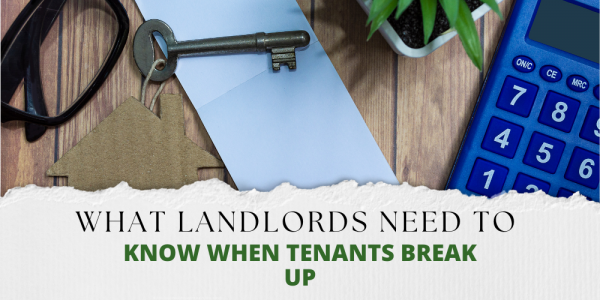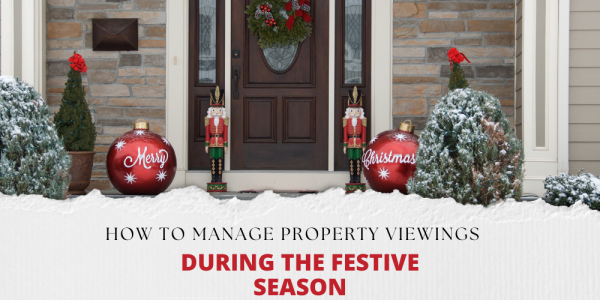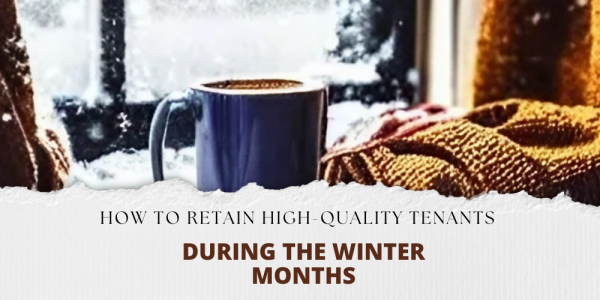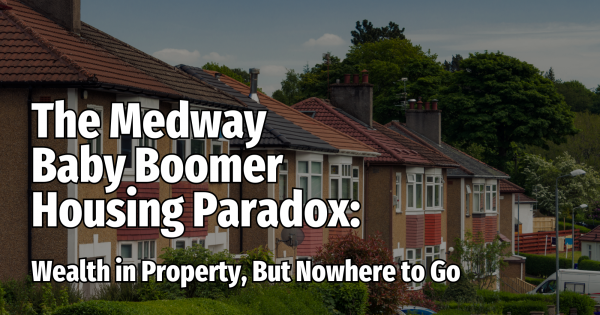CLICK HERE FOR YOUR FREE MEDWAY PROPERTY NEWSLETTER
The doom and gloom of the national newspaper headlines regarding the UK property market would make you think Armageddon has arrived, this being the second most interesting topic to the Brits (the first being the weather!).
So, what is happening in the British property market? As with most things in life, the devil is in the detail.
2020 and 2021 were exceptional years for the UK Property Market.
In Q4 2020 (Q4 being October, November and December combined), an average of 23,071 properties were sold per week in the UK (sold - as in a sale was agreed and the property went from available to sold subject to contract (STC)).
In Q4 2021, an average of 21,051 properties were sold per week in the UK.
So by the end of week 3 in November 2022, with an average of 19,694 properties per week becoming sold STC, quarter to date ... the housing market doesn't look good. Yet a different story emerges from the Q4 averages for 2016 to 2019.
In Q4 2019, an average of 16,263 properties were sold per week
In Q4 2018, an average of 15,922 properties were sold per week
In Q4 2017, an average of 15,721 properties were sold per week
In Q4 2016, an average of 15,811 properties were sold per week
The British property market is only returning to how things were before the first lockdown.
As I have discussed recently in several posts on the Medway property market in my blog, I do believe the price that will be achieved for Medway property in 12/16 months will be around 8% to 12% lower than what was being paid for property in the late spring (of 2022). Note I didn’t use the word ‘crash’.
Question - Why do the newspapers use the phrase “house price crash”?
Answer - To sell more newspapers!
Include the time, policy and efforts that the political parties go to in order keep British house prices on an upwards trajectory to gain votes and you might believe that a fall in house prices is a total catastrophe.
Nothing could be further from the truth for most homeowners and landlords.
Indeed, when you look at house prices without any emotion, when house prices fall — in isolation — more people win than lose.
So, who wins when house prices drop?
Let’s say you own a two-bedroom Medway home worth £250,000. You have an expanding family, and you need a third bedroom.
The three-bedroom home in Medway you want is £350,000, meaning you need to find £100,000 to trade up.
If Medway house prices rose by 10%, get the Champagne on ice as your Medway two-bedroom home is now worth £275,000. Mind you before you open the fizzy stuff — remember the three-bed you want has also risen 10%, meaning it is now £385,000. If you want to trade up, you need to find £110,000.
Medway house prices rising has cost you an additional £10,000.
On the other side of the coin, what if Medway house prices fell 10%?
Your two-bedroom home is now only worth £225,000. Catastrophe! Yet wait — the three-bedroom Medway home you want to move up to is now worth £315,000, meaning you only need to find £90,000 to trade up.
Also, stamp duty, solicitor fees, and estate agent fees tend to be percentage based - thus saving you money.
As over 7 out of 10 home movers move up the property ladder, falling
house prices are not necessarily a problem.
Falling Medway house prices are great for those who want to move up the property ladder and trade up.
So, who loses when house prices drop?
The first set of people that lose out are homeowners moving down market. The gap between selling a larger home and buying a smaller one narrows when one moves down market. Given the massive growth in house prices over the many decades those homeowners have been in the property market, it’s tough to see this as a calamity, yet it’s certainly a loss.
The second set of people that lose out are beneficiaries of the home being sold when a parent/grandparent passes away.
Let us all be honest; I believe there will be little sympathy in the broader community for those first two sets of people for their loss of money.
However, the most exposed (and many people will sympathise with these) are those first-time buyers who bought their first home with a small deposit. If you had just bought your first home for £200,000 with a 5% deposit (so you had a £190,000 mortgage) but Medway house prices dropped by 10%, you now own a home worth £180,000 (less than the mortgage). Now you are in ‘negative equity’ (as your mortgage is £10,000 more than what the house is worth, i.e. £190k less £180k), which causes you two main problems.
Firstly, when your fixed rate deal ends, most of the time, it is wise to re-mortgage to another rate. However, when you have negative equity, the range of mortgage deals open to you will be minimal, so you will probably have to pay your bank/building society’s quite pricey ‘standard variable rate’.
Secondly, suppose you want to sell your Medway home. In that case, the price you achieve will not pay off the mortgage, which means you will have to find the difference elsewhere (i.e. a gift/borrowing from your family or selling an asset like a car)—in a nutshell, making a move very difficult.
How many people will be drawn into negative equity if house prices drop 10%?
Just 2.9% of homeowners will be in negative equity,
As a landlord, you may encounter situations where tenants experience a relationship breakdown. While this can be a difficult time for... Tips for scheduling and conducting property viewings effectively during the Christmas holidays. Selling your home during the festive season comes with its... Dockside Kent The winter months can be a challenging time for landlords in Kent, with colder weather and shorter days adding potential... The Medway Baby Boomer Housing Paradox: Wealth in Property, But Nowhere to Go For decades, baby boomers in the UK have been the quiet beneficiaries of a...Popular posts like this

What Landlords in Kent Need to Know When Tenants Break Up
 By The Dockside Property Services Team on 12th Jan 2025,
By The Dockside Property Services Team on 12th Jan 2025,

How to Manage Property Viewings During the Festive Season
 By The Dockside Property Services Team on 22nd Dec 2024,
By The Dockside Property Services Team on 22nd Dec 2024,

How to Retain High-Quality Tenants in Kent During the Winter Months
 By The Dockside Property Services Team on 15th Dec 2024,
By The Dockside Property Services Team on 15th Dec 2024,

The Medway Baby Boomer Housing Paradox: Wealth in Property, But Nowhere to Go
 By The Dockside Property Services Team on 14th Dec 2024,
By The Dockside Property Services Team on 14th Dec 2024,


Share this with
Email
Facebook
Messenger
Twitter
Pinterest
LinkedIn
Copy this link